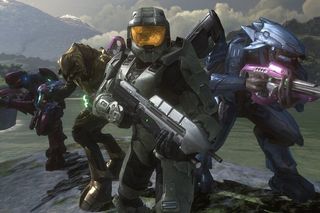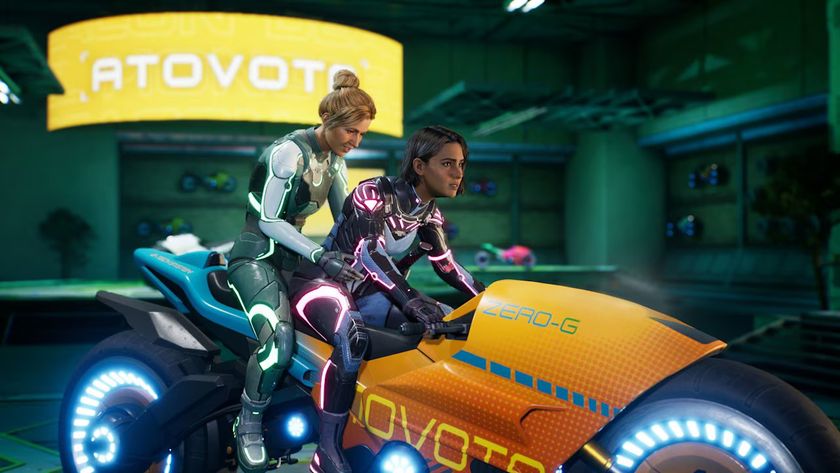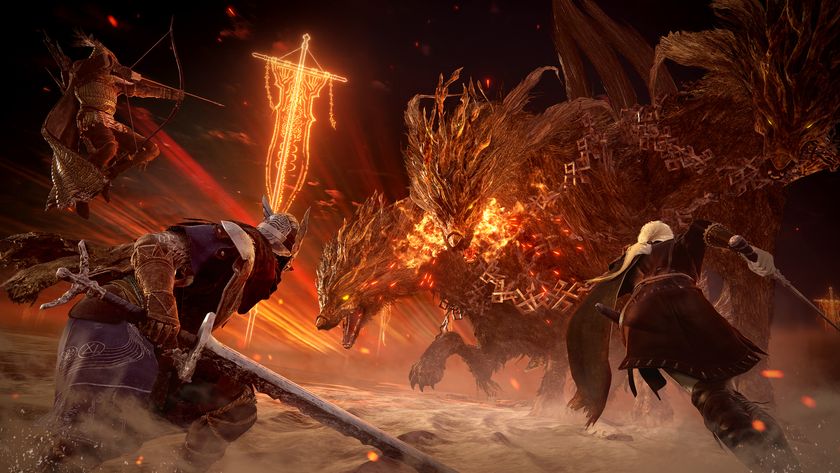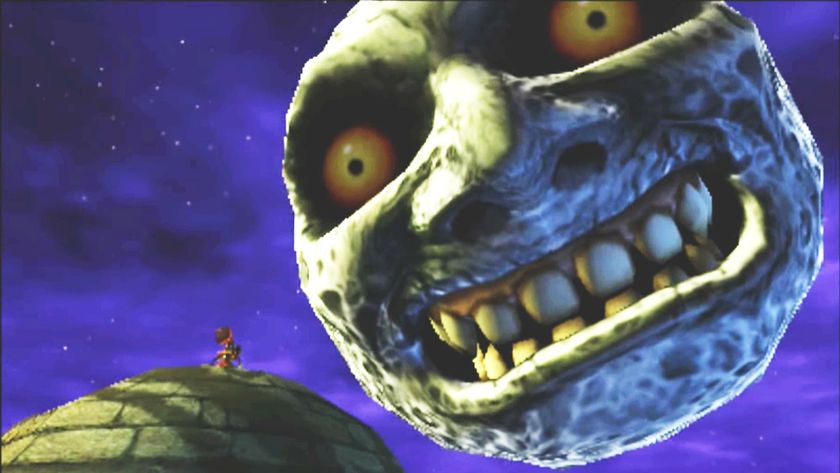Are developers even listening?
Is your voice being heard by the people that make games? We find out...
Bungie
GR: Firstly, what's your name and job role, and are you on the frontline of community relations?
Brian: My name is Brian Jarrard and I wear a few different hats at Bungie, but I've been the 'community lead' for the past five years. I am one of a few people on the frontlines who help to foster and support our community.
GR: Do developers really listen to gamers? Or should gamers stick to gaming and leave developing to developers?
Brian: Naturally I can't speak for all developers, but at Bungie we definitely do listen to our fans. The interaction and openness we have with our community has been a huge part of who we are and I like to think it has helped contribute to our product success and external support for our studio. We have to buffer that feedback against our own experiences and expertise but we do value the suggestions and feedback we receive and it does help us improve our products.
GR: How valuable is it to Bungie to have a lively, well established community? What are the real gilt-edged benefits?
Brian: I think it's extremely valuable not only to Bungie but any developer who wishes to build a loyal following to evangelize their products and studio from one release to the next. Our community is what keeps us thriving and keeps our games in mainstream consciousness and helps us break through to people who haven't heard of Bungie or didn't know about Halo. Our community holds us accountable and provides inspiration for our team. Ultimately we are building and sustaining our own installed base that we hope will continue to support every game that Bungie releases. And many of us have made lifelong friends along the way.
In this day and age, with mega publishers and development houses that are largely faceless entities that produce a product for a customer and then move on to the next product, it's more important than ever for us to maintain that personal connection. It's not only something we genuinely care about, it's also a competitive advantage. How many companies wouldn't kill to have millions of people not only consuming their product but also evangelizing it to new adopters and following that company throughout their future endeavours? We're very grateful to have such a strong following.
GR: How much attention do Bungie give to the opinions/suggestions of people beyond its own dedicated community? Do you spend significant time sifting through a broad selection of gaming forums?
Brian: It tends to vary based on what we have going on at any given moment. With the recent release of our new Halo 3 maps we'll be more keen to gauge responses and feedback from a wide variety of sources. Many of us gather this in ad hoc ways through conversations with friends and associates while we also pay attention to fan sites, forums and even media sites. Ideally we're able to latch onto some key consistent themes. It's important to have a broad perspective for fear of potential over catering to one segment of our community at the expense of the other.

Above: Halo 3 boasts one of the liveliest console communities around and has certainly helped keep it on the front page of gaming sites long after it was released
GR: Have ideas generated within the community - on your own forums, for example - ever made it into your games?
Brian: All of Bungie's games have indirectly benefited from ideas and feedback gleamed from the Bungie.net forums. Most of the time I think we discover that our own team shares many of the same concerns or ideas that are raised by our fans but it helps to have some external validation.
The simplest example I can think of for Halo 3 is the inclusion of the 'Zombies' game type. This is 100% inspired by the honor rules game that our community created in Halo 2. It turned out to be a lot of fun and garnered a cult following and as a result we were compelled to include it as an official game variant in Halo 3.
Before Halo 2 was released, I could swear that I read some forum posts where our fans were begging that we have a controversial cliff hanger ending.
GR: How are ideas/suggestions offered within the community relayed to the rest of the team for consideration? Do you have dedicated meetings for that kind of thing?
Brian: Most of this internal communication happens informally during various design and planning meetings with the respective groups responsible for the area in question - map designers, sandbox folks, mission designers, etc... Occasionally we will 'publish' some internal findings based on targeted queries into specific aspects of our games. We have several internal email aliases that we use to share ideas and then the test group files 'bugs' for future consideration.
GR: Does community feedback genuinely help to make better games? Has the industry as a whole benefited from the rise of communities?
Brian: Yes, I tend to think that community feedback helps make better games but it probably depends on how you define 'better'. Knowing exactly what your fans like and dislike is an easy way to help focus on key improvements and changes for your next game. In this way, game communities can operate as one gigantic real-time focus group that, when properly harnessed, can provide invaluable insights to the development team. There's also a risk that by focusing too much on fan feedback and commentary you could stifle your own internal fresh ideas and innovation.
I definitely think the industry has benefited from the rise of communities because they have inevitably created more passionate and more connected players. Through sheer numbers and noise, these communities can elevate gaming out of the basement and into mainstream awareness.
GR: After a game is released and in the hands of gamers, what feedback is more important to Bungie - what the community/forums are saying, or the opinions of professional reviewers/critics?
Brian: In general I'd say that we are most concerned with what our fans have to say about our games. They are the ones who paid their hard earned money and they are the ones who will hopefully continue to play our games and buy our next release. Reviewers provide a service to the game-buying public but we don't try to make games to appeal to reviewers nor do we feel we let a reviewer down if they happen to not like an aspect of our game.
GR: Hypothetical question: If you decided to trash all your community support tomorrow, do you think it would affect the sales of your games?
Brian: Probably not overnight but yes, I do think that over the long term we would see our sales negatively affected with the loss of our community. I said it before and I'll say it again - the success of Bungie and Halo is definitely due in part to the ongoing support of our community.
GR: So without a community, Bungie would be...
Brian: ...doomed to never achieve our ultimate goal of World domination. (and I'd be out of a job!)
Bungie really does listen! So get yourself involved on the Bungie community forums and make yourself heard.
Above: Halo 3 boasts one of the liveliest console communities around and has certainly helped keep it on the front page of gaming sites long after it was released
GR: Have ideas generated within the community - on your own forums, for example - ever made it into your games?
Brian: All of Bungie's games have indirectly benefited from ideas and feedback gleamed from theBungie.net forums. Most of the time I think we discover that our own team shares many of the same concerns or ideas that are raised by our fans but it helps to have some external validation.
The simplest example I can think of for Halo 3 is the inclusion of the 'Zombies' game type. This is 100% inspired by the honor rules game that our community created in Halo 2. It turned out to be a lot of fun and garnered a cult following and as a result we were compelled to include it as an official game variant in Halo 3.
Before Halo 2 was released, I could swear that I read some forum posts where our fans were begging that we have a controversial cliff hanger ending.
GR: How are ideas/suggestions offered within the community relayed to the rest of the team for consideration? Do you have dedicated meetings for that kind of thing?
Brian: Most of this internal communication happens informally during various design and planning meetings with the respective groups responsible for the area in question - map designers, sandbox folks, mission designers, etc... Occasionally we will 'publish' some internal findings based on targeted queries into specific aspects of our games. We have several internal email aliases that we use to share ideas and then the test group files 'bugs' for future consideration.
GR: Does community feedback genuinely help to make better games? Has the industry as a whole benefited from the rise of communities?
Brian: Yes, I tend to think that community feedback helps make better games but it probably depends on how you define 'better'. Knowing exactly what your fans like and dislike is an easy way to help focus on key improvements and changes for your next game. In this way, game communities can operate as one gigantic real-time focus group that, when properly harnessed, can provide invaluable insights to the development team. There's also a risk that by focusing too much on fan feedback and commentary you could stifle your own internal fresh ideas and innovation.
I definitely think the industry has benefited from the rise of communities because they have inevitably created more passionate and more connected players. Through sheer numbers and noise, these communities can elevate gaming out of the basement and into mainstream awareness.
GR: After a game is released and in the hands of gamers, what feedback is more important to Bungie - what the community/forums are saying, or the opinions of professional reviewers/critics?
Brian: In general I'd say that we are most concerned with what our fans have to say about our games. They are the ones who paid their hard earned money and they are the ones who will hopefully continue to play our games and buy our next release. Reviewers provide a service to the game-buying public but we don't try to make games to appeal to reviewers nor do we feel we let a reviewer down if they happen to not like an aspect of our game.
GR: Hypothetical question: If you decided to trash all your community support tomorrow, do you think it would affect the sales of your games?
Brian: Probably not overnight but yes, I do think that over the long term we would see our sales negatively affected with the loss of our community. I said it before and I'll say it again - the success of Bungie and Halo is definitely due in part to the ongoing support of our community.
GR: So without a community, Bungie would be...
Brian: ...doomed to never achieve our ultimate goal of World domination. (and I'd be out of a job!)
Bungie really does listen! So get yourself involved on theBungie community forumsand make yourself heard.
Sign up to the 12DOVE Newsletter
Weekly digests, tales from the communities you love, and more

Split Fiction director Josef Fares says Ubisoft is "struggling" and should make a co-op Splinter Cell game: "Don't chicken out to do single-player; just say this is split-screen only"

Elden Ring Nightreign beta invites are apparently so in demand, scalpers are already trying to resell them for hundreds of dollars
Most Popular







